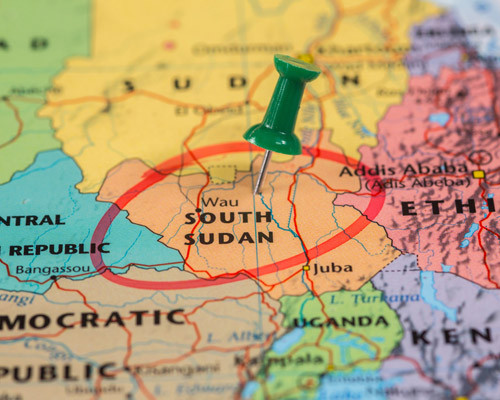The Weekly: OPEC, GCC & Economic Change
There was little surprise amongst energy analysts when it was announced last Thursday evening that the 24 governments of oil-producing states – 13 OPEC and 11 non-OPEC – had agreed unanimously to extend the production curbs agreed last November until the end of the first quarter of next year. The UAE’s Minister of Energy, HE Suhail al- Mazrouei, insisted that: “everyone is in agreement”.

- by Angus Taverner ,
- Tuesday, 30th May, 2017
There was little surprise amongst energy analysts when it was announced last Thursday evening that the 24 governments of oil-producing states – 13 OPEC and 11 non-OPEC – had agreed unanimously to extend the production curbs agreed last November until the end of the first quarter of next year. The UAE’s Minister of Energy, HE Suhail al- Mazrouei, insisted that: “everyone is in agreement”.
The oil producers, including Russia, seem to be hoping that not only will a further nine months of self-imposed production constraint help to drain the glut in global oil reserves, but will also further buttress the price of oil and establish a platform for renewed energy price increases.
‘TIGHT OIL’
Over the past three years, analysts have speculated concerning the reasons behind persistently low energy prices and the consequent reductions in oil revenues, despite various initiatives to stem sliding prices. Many of these assessments have concurred that GCC producers, led by Saudi Arabia, agreed to maintain production at then record levels in November 2014, expressly with a view to forcing the producers of shale oil out of the market. At the time, while shale oil was judged to have become lucrative in North America precisely because of buoyant prices well above the $100 per barrel mark, it appeared that a rapid but temporary decline in oil returns would render shale production uncompetitive. The expectation was that this would enable Gulf producers, not only to maintain and possibly expand market share but, at the same time, hobble the North American competition.
But this is not how it turned out. The producers of so-called “tight oil” from North American shale have shown that they too can thrive in a world of $50 per barrel oil. Over the past three years, American shale producers have been able to shrink costs and accelerate drilling at the same time as demonstrating that shale production can respond more quickly and nimbly to shifting market conditions than traditional producers in the Gulf and Russia – switching production on and off over relatively much shorter notice periods.
This has led analysts to consider how Gulf producers in particular, may have to live with oil prices in the $40 to $60 range for some time to come. There was also speculation this week that a further nine months of production constraint may not have the outcome that analysts presume is desired.
GCC ECONOMIC GOALS
Much of the economic debate around low oil returns continues to be couched in terms of perceptions of economic pain for Gulf states that are presumed to remain heavily reliant on energy sales for the health of national exchequers. In this context, it is commonplace for energy commentators to suggest that, without adequate income from oil, GCC member states in particular, risk not only a continuation of economic austerity but also political instability. Some commentators also continue to argue that there is an unspoken compact between rulers and ruled that Gulf leaderships retain their power and right to rule, solely on the basis of delivering generous cradle-to-grave economic subsidies to their peoples.
In pursuit of this construct, some analysts have made much of the assessed fiscal breakeven prices for various oil-producing countries and the economic impact that sub-$50 per barrel prices continue to have on sovereign wealth funds and other fiscal reserves. A typical graph produced by the IMF last year Illustrates well this assumption that, amongst GCC member-states, only Kuwait is able to balance its budget with oil prices below $60 per barrel.
However, while the assumption linking oil revenue to fiscal well-being may have been justified during the era when the Gulf states were routinely dismissed as little more than ‘rentier economies’, analysis of recent economic planning across the GCC suggests that lower returns on oil over the past three years may not be the cause for grave concern that some commentators proclaim.
While almost certainly a coincidence, the announcement by Moody’s, the international ratings agency, on the same day this week that OPEC was meeting, that it was changing its assessment of the economic outlook for Abu Dhabi from “negative” to “stable” included a comment that credited the way in which the emirate had cut government spending by 23 percent over the past two years as: “an effective and broad policy response to the lower oil environment.” Moody’s went on observe that the UAE had moved to reduce subsidies and raise prices across the full range of utilities including: fuel, electricity and water.
In Saudi Arabia, under Prince Mohammed bin Salman’s ‘Saudi Vision 2030’, economic planners in the Kingdom have similarly started to cut subsidies; raising prices and focusing on the development of a future non-oil economy.
Against this backdrop of economic re-structuring, it is suggested that far from being the energy crisis that some commentators portray, a $40-$60 oil price is in fact helping Gulf governments to persuade their populations of the need to align economic policy more closely with international norms so that wealthy Gulf states can diversify with increasing effect into non-oil economic activity.
As early as 2013, research for Gulf News in the UAE showed that all four of the largest GCC economies were benefiting from larger non-oil contributions to their economies, than oil. This is a trend that is increasing across the region and it underlines the push within the GCC to ensure that national economies continue to diversify away from oil dependency and, at the same time, to embrace the emerging opportunities from renewable energy sources.
While it would be rash to predict where energy prices are headed over the coming five years, it does seem that more progressive leaders in the Arabian Gulf are seeing the shrinkage in oil returns as much an opportunity as a threat. Lower revenues are helping leaderships to justify structural economic changes to their peoples, not just as an opportunity to realign more closely with global norms but also because they are helping leaders to encourage populations to embrace change and the development of 21st century knowledge economies where individuals will be rewarded, not because they are fortunate enough to have been born in a land with oil beneath their feet but because that state is now willing to encourage and reward entrepreneurism and those willing to accept the challenges of building new sources of national wealth.
It seems that most GCC states now recognize that excess oil revenues are as much as curse as an advantage. If individual citizens are to accept reduced state dependency, emphasizing the lower revenues from oil may be providing just the spur that leaders have sought to make the case for change.

Angus Taverner
(Director Global Affairs Division) (former)

